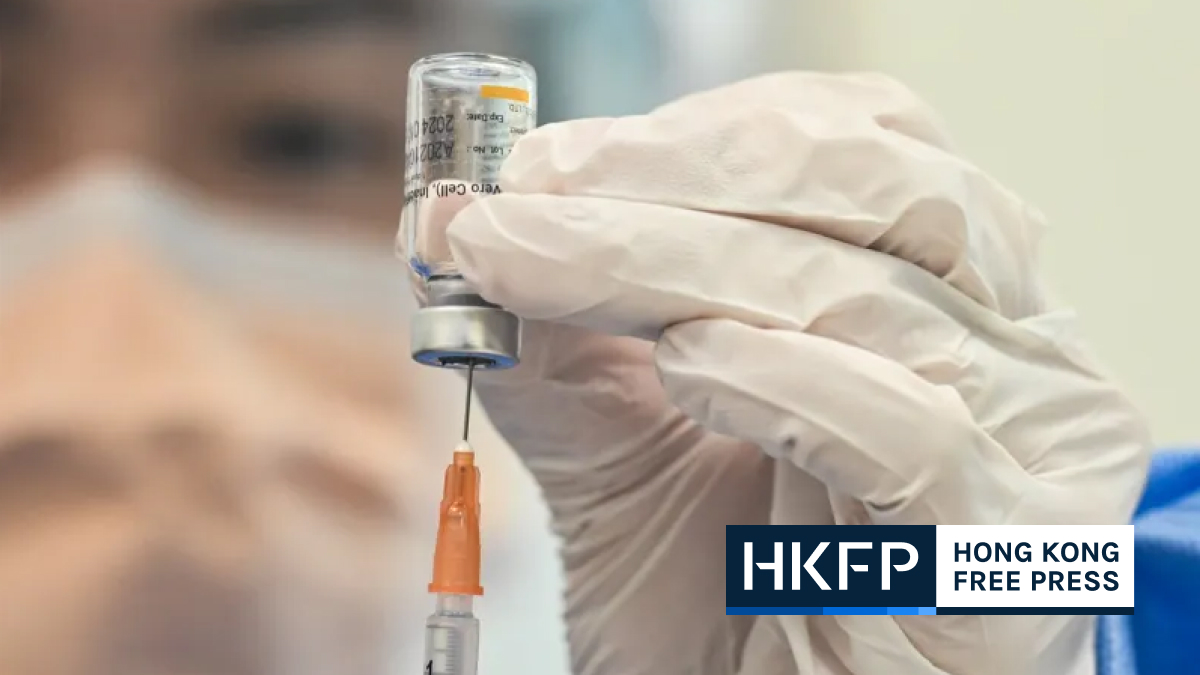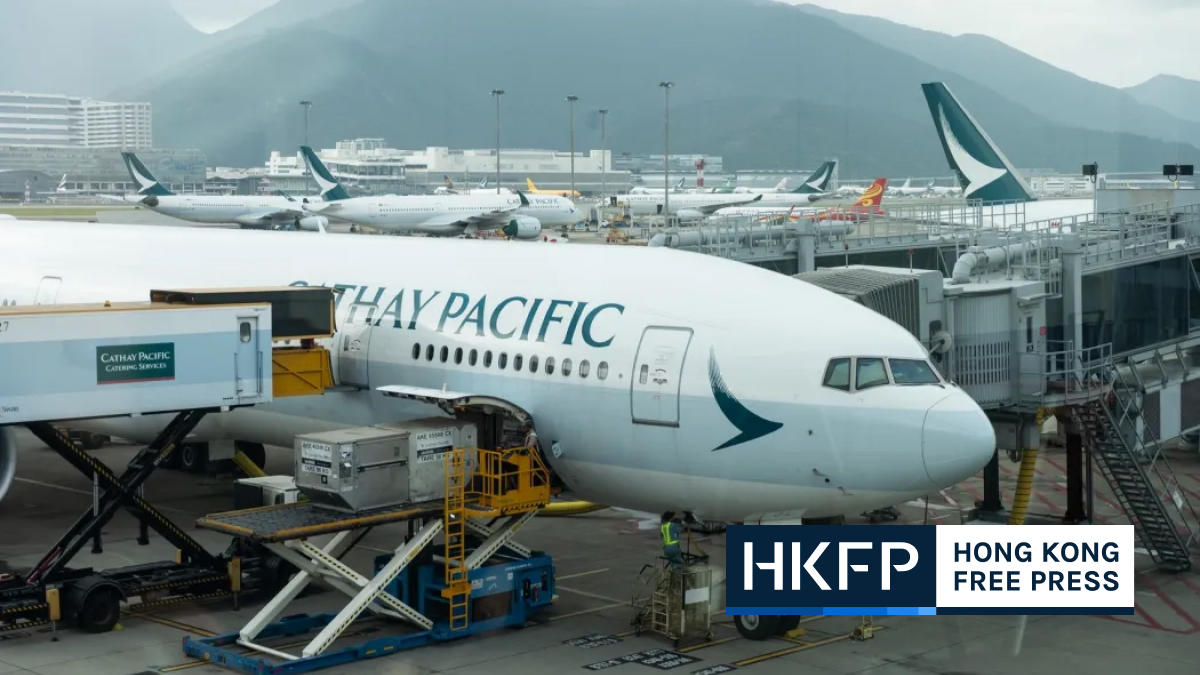As the city surpasses a million cases of Covid-19 and over 5,000 deaths, HKFP – in affiliation with The Guardian – examines how we got here.

Why did Covid spread so quickly in Hong Kong?
The surge in infections during Hong Kong’s Omicron-led fifth wave of the coronavirus has outpaced other cities’ outbreaks. Analysis of government data by HKFP showed there were almost 900 confirmed infections per 100,000 Hong Kong citizens in early March, when cases peaked. The all-time high for the pandemic was previously held by New York City, with 500 cases per 100,000 residents in January.
There are several reasons behind this.
University of Hong Kong virologist Vijaykrishna Dhanasekaran told HKFP that one factor was that “Hong Kong has a huge issue in terms of high density population and cramped spaces, especially in public housing estates.”
When the more-transmissible Omicron variant breached the city’s pandemic defences in late December – first brought in by air crew before escaping from hotel quarantine – it ripped through a public housing complex. The ensuing lockdowns at several blocks of a Kwai Chung housing estate disrupted the lives of tens of thousands.
Hundreds of infections were discovered, but not before residents had complained of chaotic arrangements. To undergo daily mandatory tests, many had to cram into tight, indoor spaces such as lift lobbies to join the hours-long queues. “We are quite concerned. Look how far apart we are standing,” one resident waiting in line for a Covid-19 test told HKFP at the time.
Such scenes were not unique to Kwai Chung Estate as Hong Kong’s zero-Covid policy buckled under the sheer scale of Omicron. Despite dealing with a different variant, the city’s strategy remained static, relying on travel restrictions, universal mask-wearing, limits on public gatherings, early detection of infections, aggressive contact tracing and isolation, even as some became unsustainable.
Addressing a question about whether her administration would bear responsibility for high rates of infections and deaths during the fifth wave, put to her by HKFP during Monday’s daily press briefing, Lam said the government achieved its “objective of keeping Hong Kong people safe until we were hard hit by the fifth wave, arisen from the highly transmissible Omicron.”
Not everyone agrees. One internal medicine resident speaking on condition of anonymity told HKFP: “I think we’ve had a lot of very stupid decision making by the government and health authorities.”
“If a leader is of any virtue, he or she should resign in shame after seeing so many elderly people die of policy faults,” Wong wrote, calling the Covid-19 crisis a “man-made calamity.”
Did hospitalising asymptomatic patients contribute to Hong Kong’s Covid crisis?
From the outset of the pandemic, isolating and treating all Covid-19 patients at public hospitals, regardless of the severity of their condition, has been a central tenet of Hong Kong’s anti-epidemic approach.
However, as infections rose during the fifth wave and beds became limited, hospitalising every case became not only impossible but unnecessary. Accident and Emergency departments were forced to triage patients and the government started to allow home quarantine, while engaging mainland China to hastily build basic isolation facilities.

Public hospital personnel were deployed to care for those staying at these facilities in what medics called a misallocation of staff. Speaking to HKFP anonymously for fear of reprisals, one A&E doctor said: “There’s no reason to waste so many resources and manpower to lock [patients with mild or no symptoms] up… they can essentially live at home.”
Another doctor, who also declined to be named, told HKFP: “People have developed more severe illnesses because they didn’t get the care that they could have.”
On Wednesday, 300 medical personnel arrived from mainland China to help ease the burden of Hong Kong’s public hospitals. Most of them would be sent to work at AsiaWorld-Expo, an exhibition and convention facility that has been converted to isolate and treat elderly Covid-19 patients.
Why does Hong Kong have such a high death rate?
Before the fifth wave, Hong Kong had reported 212 coronavirus-related deaths. It is currently recording above that amount daily.
Virologist Siddharth Sridhar at HKU’s Department of Microbiology called Hong Kong’s Covid-19 death rate – among the worst in the world – “tragic but expected,” pinning it on a “perfect storm” of low vaccination rates among the elderly, low rates of prior infection and an overwhelmed healthcare system.
“The data is really clear,” Dhanasekaran said. “Most people who end up in hospitals are not vaccinated, most people who are in severe conditions are elderly. It is really clear what has gone amiss.”
On Monday, Lam acknowledged that the city’s vaccination rate played a role. At present, 81 per cent of those aged 12 and over have received two doses of the Covid-19 vaccines available in Hong Kong – the Chinese-made Sinovac, a traditional inactivated vaccine, and BioNTech, an mRNA vaccine produced in Germany. However, that figure drops to almost 56 per cent among those aged 80 and above.

Mistrust of the authorities following months of pro-democracy protests, arrests and an ensuring national security law crackdown have also been blamed for the low vaccine uptake, as well as an over-emphasis on potential side effects.
Has the use of the Sinovac vaccine added to Hong Kong’s Covid crisis?
Government data shows Sinovac to be the preferred vaccine among those aged 70 and over, despite several studies indicating that it is less effective – particularly against Omicron – than the BioNTech vaccine. That could be, in part, because some elderly care homes only offer the Sinovac jab to residents.
According to Dhanasekaran, Sinovac “has been shown to work really well in many countries,” against earlier strains of the virus, although it was “not as effective as the BioNTech [jab].”

Health authorities have refused to disclose data on what type of vaccine patients with the Omicron variant of Covid-19 have taken. HKU epidemiologist Ben Cowling told HKFP that it would “definitely” be beneficial to see more details. “It would be very valuable to have local real-world data on how well vaccines are protecting individuals of different ages against infection and against severe disease,” he said.
Ultimately, though, Dhanasekaran said, “having some vaccines is better than no vaccines,” adding that “Sinovac is not really the biggest issue here, the low vaccination rate is absolutely the problem.”
What does Hong Kong’s failure against Omicron mean for mainland China?
Mainland China is currently battling a number of Omicron outbreaks that have seen almost 30 million people locked down. The governor of northeastern Jilin province, the current epicentre of China’s infections, vowed to “achieve community zero-Covid in a week,“ state media reported on Monday. All 24 million residents have been placed under quarantine orders, the first time an entire province has been locked down since the pandemic began.
But in a sign that thousands of Omicron infections might be forcing a more dynamic approach from authorities, China approved the use of rapid antigen tests last Sunday – a first in the country, which has relied exclusively on nucleic acid tests to confirm Covid patients.
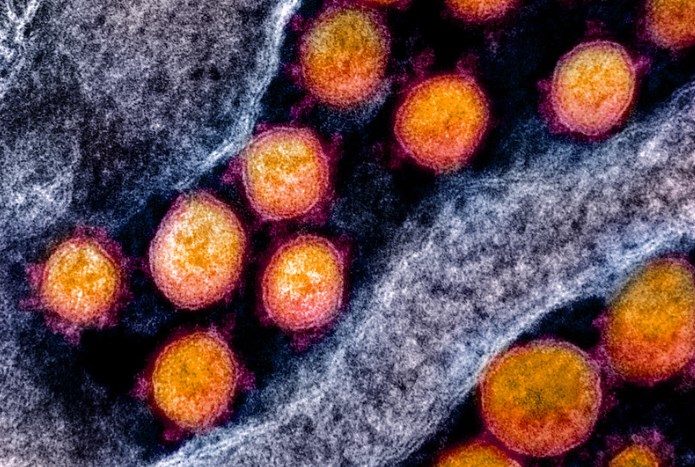
Hong Kong made a similar pivot at the end of February, when laboratories were unable to process the sheer number of specimens from nucleic acid tests coming in, causing huge backlogs in cases being reported.
There are other ways that what has happened in Hong Kong could foreshadow what is to come across its northern border.
“I was quite surprised, of not just the low vaccination rate in the elderly in Hong Kong but also in the mainland,” Dhanasekaran said, although he was unable to say why that might be, calling the answer “complex.”
China has yet to report a surge in deaths related to its latest wave of infections. However, experts agree that the country’s zero-Covid policy remains on a knife-edge. “The next two weeks are key to determining whether existing policies can really be effective in curbing infection growth or even reaching completely zero cases in one city as we saw last year,” University of Oxford epidemiologist Chen Zhengmin told Reuters.
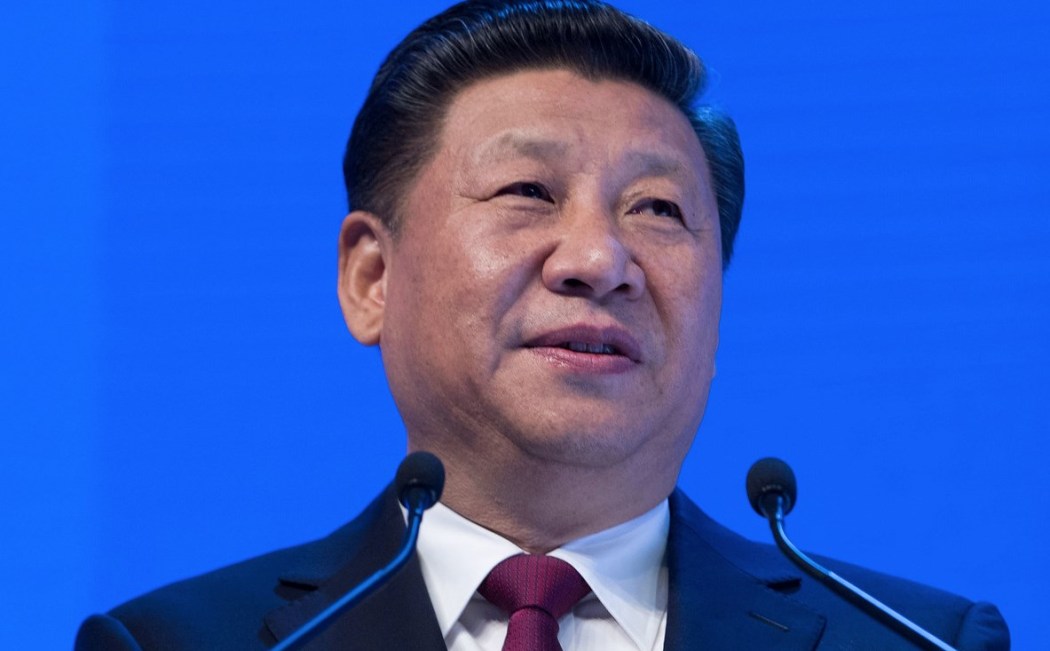
Eventual, perhaps, but not imminent. According to state-broadcaster CCTV, China’s leader Xi Jinping said on Thursday: “We must always continue to put people and life at the forefront, stick to scientific accuracy and dynamic-zero, and curb the spread of the epidemic as soon as possible.”
How does mental health figure in Hong Kong’s Covid policies after years of social distancing?
“I think mental health needs to be considered as a priority,” Dhanasekaran told HKFP. “The longevity of the control measures and the multiple waves have put pressure on more people and increased their burden.”
Extended suspensions of in-person classes have had a negative impact on the physical and mental well-being of children in low-income families in particular, an HKU study found. Suicide prevention group the Samaritan Befrienders Hong Kong has recently received hundreds of calls related to the fifth wave, with many citing discontent with the government’s handling of the pandemic, emotional distress triggered by the outbreak and its impact on their daily lives.

“As a person who’s actually working in a public health department, I think there’s multiple principles and ethics in terms of what can be applied and I think it’s best to stick within those… that actually work, which will enable the public to build trust in the system you have,” Dhanasekaran said.
“I think we missed some opportunities to take advantage of, or actually leverage on the compliance of the Hong Kong population, and the knowledge the Hong Kong population already has in terms of controlling diseases.”
Will Hong Kong return to zero-Covid after the fifth wave subsides?
In early March, top health official Albert Au said that Hong Kong would revert to its tough zero-Covid policy once the fifth wave subsides. “After the number of cases has decreased to a certain number, when the number of cases drops, then we can adopt more aggressive strategies on contact tracing as well as compulsory testing so as to increase early detection,” Au said.
However, Lam acknowledged a certain level of pandemic fatigue among the population on Thursday, the same day that government-managed beaches were closed “until further notice.” Dhanasekaran called beach closures “a measure that is going to be least effective,” whilst critics call such measures “performative.”
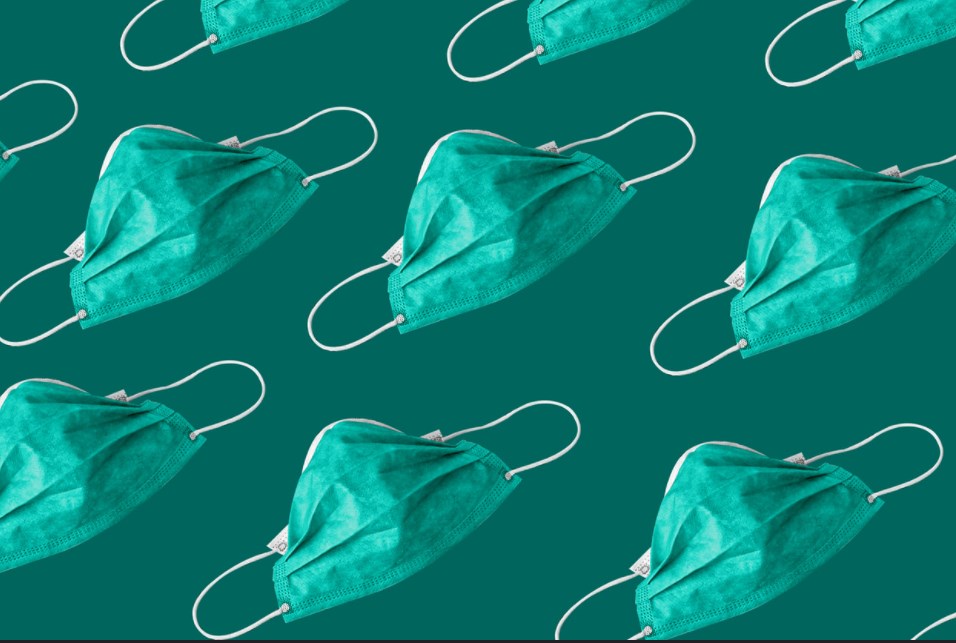
During Thursday’s daily press briefing Lam said a number of Covid-related regulations and restrictions would be reviewed in the coming days. “The reason why I think the time has come [for a review] is not because the number of cases has come down significantly – they are actually now at a high-level plateau. But I have a very strong feeling that people’s tolerance is fading,” Lam said, adding that financial institutions were losing patience with the city’s “isolated status.”
Also on Thursday, three HKU microbiologists – including government expert advisor Yuen Kwok-yung – urged the government to release a roadmap to resume normality as soon as possible “to let the public regain confidence and hope in Hong Kong.”
“If people aren’t already considering it they should start considering it strongly in terms of what’s going to be the mitigation policy,” Dhanasekaran said.
What will Covid look like in the near and distant future?
In the immediate future, Hong Kong can expect to have a high immunity to the virus. HKU’s Cowling said in a tweet that “population immunity will be extremely high in 1-2 months time, after this Omicron epidemic ends,” thanks to natural immunity from some 70 per cent of citizens having been infected, according to HKU modelling, and high vaccine coverage.
Dhanasekaran said that should apply globally, too. “In a few years’ time, a large proportion of the global population would have been vaccinated, as well as infected multiple times with the virus, indicating that they would generate a robust immune response.”

However, he cautioned that Covid-19 – and its associated public health and social measures, including travel restrictions – was something we must learn to live with.
“It is always going to be small epidemics, occurring either seasonally or non seasonally, as we are seeing with influenza in recent years,” he said.
The most important thing going forward is to protect those most vulnerable to the virus. “We have to protect the elderly, repeatedly, over many years,” Dhanasekaran said. “The countries or populations that survive the best are those where the most vulnerable are protected against this disease for the next decade at least.”
Support HKFP | Policies & Ethics | Error/typo? | Contact Us | Newsletter | Transparency & Annual Report | Apps
Help safeguard press freedom & keep HKFP free for all readers by supporting our team




